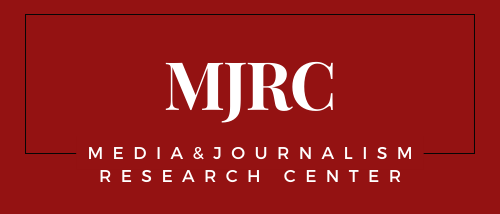New MJRC Study: Regulation of Social Media and Elections in Europe
Over the last several years, the impact of social media platforms in elections has driven heightened legislative and regulatory oversight of digital platforms, given their potential to amplify systemic risks that could harm the democratic process of elections. Scientists, technologists and policymakers have expressed concerns regarding the heightened risk to election integrity caused by the proliferation of fake news. The strategies employed amount to election delegitimization, the unlawful processing of personal data for political micro-targeting and profiling, foreign interference campaigns, synthetic and manipulated media through new technologies such as generative Artificial Intelligence, threats of violence against election officials, and the proliferation of illegal hate speech online and (violent) extremist content.
There is an increasing recognition of the need for policies that ensure election fairness and integrity, as well as the effective regulation of social media platforms. These measures are essential to maintain public confidence in electoral processes and to provide voters with an environment where they can make informed decisions based on access to fair and balanced information.
Based on this background, a new report issued today by the Media and Journalism Research Center and Maharat Foundation provides an overview of constitutional, legal and regulatory frameworks enforced in the European Union, examining the responses of different Member States as they seek to mitigate the risks related to electoral manipulation on social media and tackle election information digital warfare. The central research question explores how social media platforms are regulated during elections within the European Union.
This is examined from multiple perspectives, considering both legislative and non-legislative measures implemented across Europe, along with complementary legal tools. These perspectives include the General Data Protection Regulation (GDPR), the Digital Services Act (DSA) and Digital Markets Act (DMA), the Audiovisual Media Services Directive (AVMSD), the e-Privacy Directive (e-PD), the Regulation on the Transparency and Targeting of Political Advertising (TTPA), the Artificial Intelligence Act (AIA), measures against disinformation, EU Parliament resolutions and communications, as well as sector-specific regulations.
The analysis also draws on case law from the European Court of Human Rights under the Council of Europe. The assessment is guided by a set of criteria/key issues identified based on a systematic review of relevant academic and policy research, which concentrate on the potential impact and risks of social media platforms for election integrity.
The publication is part of the project entitled “Media Reform to Enhance Freedom of Expression in Lebanon”, implemented by Maharat Foundation, Legal Agenda and the Media and Journalism Research Center (MJRC) with the support of the Delegation of the European Union to Lebanon.
The study is available here.
Read more on the project page.
Photo by Ravi Sharma on Unsplash
Invest in independent media research and join a community of practice.
Your contribution supports MJRC’s investigations and global analysis. As a supporter, you can receive early access to new findings, invitations to small-group briefings, inclusion in our Supporters Circle updates, and the option to be listed on our Supporters Page.
Contribute to MJRC
